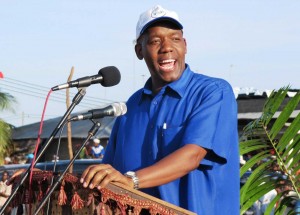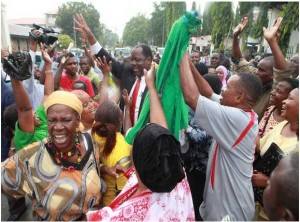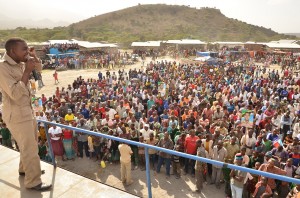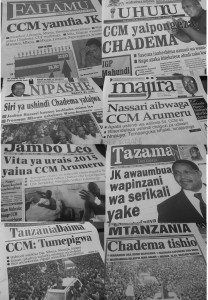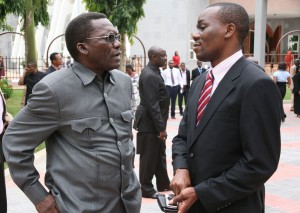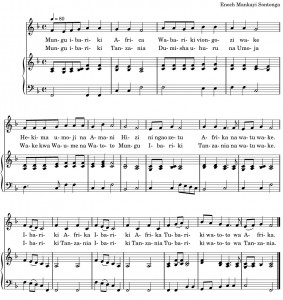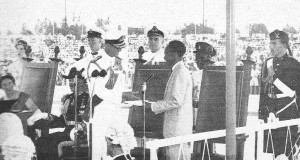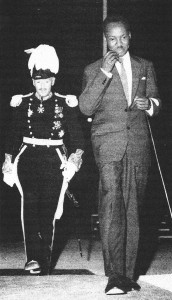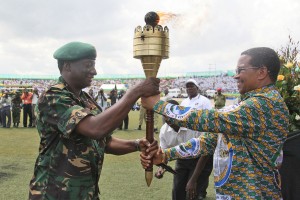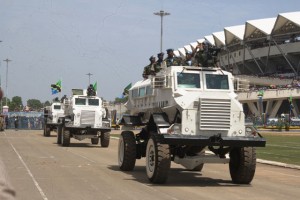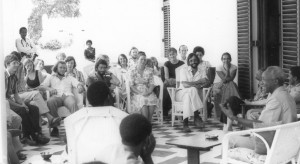The Citizen and other media continue to provide Tanzanians with full coverage of political developments.
Ructions in parliament
It was drama after drama in Parliament on June 18, according to the Citizen, when Chadema MP John Mnyika was thrown out of the House after he refused to withdraw a statement that President Kikwete was a weak leader. Mnyika had said that the budget, which had been criticised by many MPs, was the result of President Kikwete’s weakness, Parliament’s laxity and the CCM’s “stupidity”.
At this point, Government Chief Whip William Lukuvi shot up and asked Deputy Speaker Job Ndugai to order Mnyika to withdraw his remarks. He added: “According to section 64 of our Standing Orders, it is forbidden to use abusive or unpalatable language, especially when referring to the President. And, to make things worse, Mr Mnyika has personally referred to President Kikwete, not the presidency. This is unacceptable.” Mr Ndugai concurred with Mr Lukuvi and asked Mr Mnyika to withdraw the statement, but the youthful MP refused to comply. “Mr Deputy Speaker, if you would listen to what I meant, you would see my point,” Mnyika retorted. But Ndugai intervened, saying: “Mr Mnyika, this is an order. You should withdraw the statement because you didn’t use decent language.” Mnyika responded that he would stand by his statement since he had not meant any harm.
The Deputy Speaker stood up, holding a copy of the Parliamentary Standing Orders, and said: “According to section 73(2) of our Standing Orders, if a member uses abusive, attacking or unpalatable language and he refuses to withdraw his statement after being ordered by the chair, the Speaker may order the Sergeant at Arms to send him out and he may remain outside for the remainder of the session on that day..I am taking that decision now. Sergeant at Arms, please escort Mr Mnyika out and make sure that he does not return until tomorrow at 9am.” But, having sensed what was coming, Mr Mnyika had already collected his documents and left the debating chamber.
The sniping along party lines started earlier when Tundu Lissu MP, (Singida East – Chadema) had dismissed the government and ruling party as useless and a group of silly people.
The President’s earlier comments
President Kikwete earlier saluted the seventh sitting of Parliament, saying that the fearless frankness with which MPs had discussed embezzlement of public funds was doubly advantageous. Firstly, it jolted him as Head of State into thinking how to set things right; secondly, it enhanced amongst the wananchi respect and confidence for MPs as genuine servants who seriously strove to promote the public interest.
Mr Kikwete dismissed the notion that he was angered by the discussions on the subject in the House, stressing that on the contrary, they excited him, since they demonstrated the resolve by the people’s representatives to press the government to book looters of public wealth.“ I found the frank and fearless discussions on sensitive issues that have a critical impact on the livelihood of wananchi most pleasant; this is the best way of practicing good governance.” He went on to assure his audience that the government would not be indifferent to the issues raised by MPs, remarking “I congratulate them for pushing the government to act on important issues….”. He was pleased that his efforts to strengthen the office of the Comptroller and Auditor General (CAG), and his call for discussions on its reports to be more transparent, were beginning to bear fruit. When he had received the first CAG report in 2007, he was deeply shocked by the way public servants were embezzling public funds and he had vowed to make changes.
Kikwete picks Mbatia as an MP
President Kikwete has named the chairman of the small opposition NCCR-Mageuzi Party, James Mbatia, to be a nominated MP. Mbatia joins four elected NCCR-Mageuzi MPs in Parliament. He failed to win the Kawe seat in Dar es Salaam in the 2010 elections (Chadema won the seat). Others nominated as MPs are Prof Sospeter Muhongo and Ms Janeth Mbene.
This nomination takes to six the number of MPs nominated by President Kikwete since the 2010 elections. The constitution allows him to pick a maximum of ten nominated MPs. Earlier nominees were Shamsi Vuai Nahodha, Prof. Makame Mbarawa and former Finance Minister Ms Zakia Meghji. Mr Nahodha and Prof Mbarawa were later appointed Home Affairs Minister and Minister for Communications, Science and Technology.
Retired University of Dar es Salaam lecturer Dr Azaveli Lwaitama said that, while the nomination of a politician from the opposing camp as an MP was bound to raise eyebrows, “I think this is the first time the President has nominated the national chairman of an opposition party as an MP… Prof Muhongo, a respected expert in mining, would add value to parliament, especially at this time when there are efforts to ensure that the country benefits more from its mineral resources.”
Deputy Leader of the Official Opposition in Parliament Zitto Kabwe MP (Chadema), echoed Dr Lwaitama’s views, saying Mr Mbatia’s nomination was not unusual. Praising these nominations he said that nominated MPs would not have to worry about voters and constituencies. They would have enough time to deal with national problems without unnecessary distractions.
Tanzania gazettes new regions and districts
The Tanzania government has officially announced the establishment of four new regions – Geita, Katavi, Njombe and Simiyu – and 19 districts – Buhingwe, Busega, Butiama, Chemba, Gairo, Ikungi, Itilima, Kakonko, Kalambo, Kaliua, Kyerwa, Mbogwe, Mkalama, Mlele, Momba, Nyang’hwale, Nyasa, Uvinza and Wanging’ombe.
Election Appeal Verdicts
It seems a long time since the last parliamentary elections in 2010. At the end of those elections, several candidates appealed to the courts to rectify what they considered to have been incorrectly conducted vote counting or other infringements of the electoral laws. Finally the courts have begun to give the verdicts on the electoral petitions and both main parties have had reason for satisfaction and disappointment, as generally the election results have been upheld.
The High Court in Dar es Salaam threw overboard with costs a petition which sought to nullify the results in Segerea constituency in which the ruling CCM candidate, Dr. Makongoro Mahanga, had won. The results had been as follows: CCM 43,839 votes and Chadema 39,639.
In the verdict, which took almost four hours to read, Judge Ibrahimu Juma rejected arguments presented by the petitioner in the case, Fred Mpendazoe (Chadema), and upheld Mahanga’s victory. The judge said that the petitioner had failed to bring in reliable witnesses who would have given correct information on what had really transpired during the elections. The judgement was delivered amid tight security with huge crowds of Chadema and CCM supporters outside. The MP was escorted by jubilant CCM supporters past protesting opposition Chadema backers. The Guardian reported that Dr Mahanga could barely hold back tears after the court dismissed the petition. The court ruled that the entire election exercise in Segerea had been free, fair and in line with the law regulating general elections. The judge ordered the petitioner to pay the costs of the case.
In Mbeya, Chadema’s incumbent – Mbozi West MP David Silinde – triumphed over CCM’s Dr Luka Siyame. A three-judge bench dealt Dr Siyame a second legal blow by declining his request to overturn a high court ruling which had dismissed his election petition. Justice Msofe dismissed the section of law which the advocate had used to move the withdrawal intention, saying it had many legal defects. The bench ordered Siyame to foot the costs of the case.
In Dar the High Court upheld the election of Chadema’s John Mnyika as the Ubungo MP. Lady Justice Upendo Msuya dismissed the petition filed by the losing CCM candidate, Ms Hawa Ng’humbi, for lack of sufficient grounds to overturn the result.
In Biharamulo the judge accepted that the elected CCM MP had been elected in free and fair elections.

